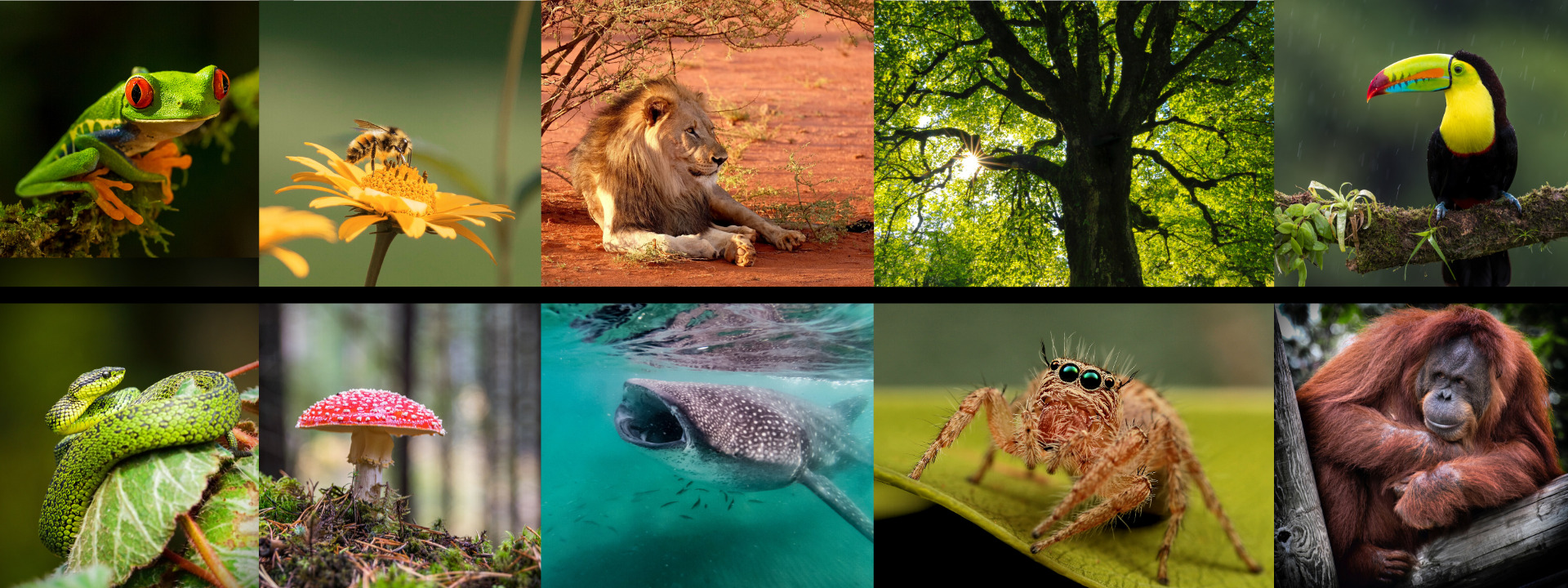
International Day for Biodiversity: population action vital
International Day for Biodiversity: population action vital
Campaigners call on governments to take action
To mark the International Day for Biological Diversity (May 22nd), campaigning charity Population Matters is calling on governments across the world to take action to address population in order to protect biodiversity. Their call has been backed by Population Matters patron, Dr Jane Goodall.
Dr Goodall says:
“The extinction crisis results from a combination of different human activities, including the pollution of land, air and water, demand for land, food and energy, the destruction of forests, extreme poverty, and the unsustainable lifestyles of so many of us. And all of this is impacted by the relentless growth of human populations and their livestock. It is also important to recognise that one child raised in an affluent family could consume multiple times more resources than children born in poor communities.
“Educating and empowering women and girls and providing family planning information enables more people to choose the size of their families. These are the kind of positive actions governments can take, and must take if we’re to address the biodiversity loss we’re facing.”
2020 is a critical year for the natural environment. The Convention on Biological Diversity is the key multilateral mechanism protecting biodiversity and its next phase is currently being negotiated. In 2011, the CBD adopted 20 specific targets (the Aichi Targets) to be met by 2020 – its most recent assessment is that most will not be met (1).
Population Matters Executive Director Robin Maynard has written to the environment ministers of more than 40 nations urging them to ensure that the next phase of action under the Convention on Biodiversity – the “post-2020 framework” – introduces language and measures to ensure ethical, voluntary measures to address population are recognised and promoted as potential solutions to the biodiversity crisis (2). In the letter, he says:
“Failure to address human population growth is certainly among the reasons so many of the Aichi targets will be missed. Despite this, at this stage in the process of developing the Convention’s post-2020 framework, no language or content addressing human population has yet been included. It is imperative that the post-2020 CBD framework includes mechanisms to ethically and sustainably ensure rapid progress towards local and global human population levels that are sustainable and compatible with its goals.”
The most recent UN projections see population increasing throughout this century. The medium forecast is for a population of 9.7bn (2bn more than today) by 2050 and 10.9bn by 2100 (3.)
Since 1970, according to WWF, populations of vertebrate wildlife have declined by 60% – in the same period, the global human population has doubled (4). Scientific consensus about the impact on biodiversity of population growth is strong and growing:
- Last year’s critical Global Assessment by the Intergovernmental Science-Policy Platform on Biodiversity and Ecosystem Services global assessment reports that one million animal and plant species already face extinction and identifies population growth as an indirect driver of our biodiversity crisis. It calls for “transformative change” to address such drivers (5).
- 2017’s World Scientists Warning to Humanity: Second Notice, endorsed by more than 20,000 scientists globally, which warns of “catastrophic biodiversity loss” if action is not taken, including on human population (6).
A fully referenced Population Matters briefing on biodiversity loss, population and the Convention on Biodiversity is available here.
Population Matters is due to meet UK ministers next month to discuss this issue.
– ends –
CONTACT
Alistair Currie, Head of Campaigns and Communications:
E: alistair.currie@populationmatters.org
T: 0208 123 9170
NOTES FOR EDITORS
- The Convention on Biodiversity is the key international agreement protecting global biodiversity. It obliges signatory governments to develop plans to protect biodiversity in their own nations, sets targets and coordinates international action. According to IPBES (see note 5) good progress has been made to meet only four out of the twenty targets, which are due to be met this year. The post-2020 framework of the Convention on Biodiversity will be finalised at a meeting in Kunming, China, which was originally scheduled for October this year, but has now been postponed due to COVID-19, with no new date yet determined. The “zero draft” of the framework published in has no reference to population. https://www.cbd.int
- Letter available here
- Global population figures United Nations Population Division (2019) World Population Prospects 2019
- WWF (2018) Living Planet Report – 2018
- Intergovernmental Science-Policy Platform on Biodiversity and Ecosystem Services Global Assessment Summary for Policymakers (2019)
- Ripple et al. and signatories from 180 countries (2017) World Scientists’ Warning to Humanity: A Second Notice, Bioscience
Population Matters is a UK-based charity working globally to achieve a sustainable future for people and planet. Our mission is to drive positive, large-scale action through fostering choices that help achieve a sustainable human population and regenerate our environment.
135-137 Station Rd, London e$ 6AG
Registered charity: 1114109
